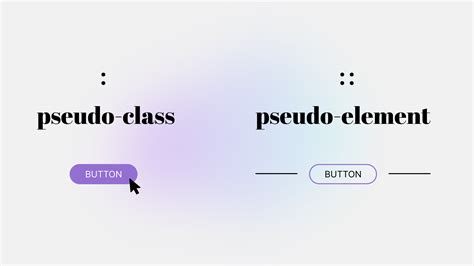fake nike feminism Nike is facing a backlash in Japan over an advert which highlights racial discrimination in the country. The video shows the "real life experience" of three young soccer players from mixed.
This is an authentic LOUIS VUITTON Monogram Egg Bag in Black. This bag is crafted of a sturdy Louis Vuitton monogram on coated toile canvas on one side and the reverse in black leather. The bag features vachetta top handles and an optional gold chain shoulder strap.
0 · “Willpower knows no obstacles”: Examining Neoliberal
1 · Pseudo
2 · Nike’s Girl Effect and the Privatization of Feminism
3 · Nike's diversity advert causing a backlash in Japan
4 · Nike calls out gender stereotypes with powerful new ad
5 · Korean Consumers’ Responses to Nike ’s “Women’s Just Do It
6 · How Nike’s Neoliberal Feminism Came to Rule the Global South
7 · Girl Branded: Nike, the UN and the Construction of the
8 · Celebrity Feminism: Nike Style Post
9 · Brand Activism and Gender: Nike as a Case Study
Rezervācijas pieņemam rakstiski [email protected] vai telefoniski 29257464. Pavasara ziedu jūra PAKROJAS muižā, Rundāles pils krāšņās tulpes un sirsnīga ciemošanās Akmeneles muižā 18.05.2024 - 18.05.2024
“Willpower knows no obstacles”: Examining Neoliberal
In the winning paper for the 2015 Audre Rapoport Prize, Maria Hengeveld astutely argues that the Girl Effect only serves to legitimize Nike’s reputation and image by obscuring its own role in creating poverty while it rebrands itself as a . Using a critical cultural studies approach in concert with a transnational feminist framework, we analyze six recent Nike advertisements (the United States, Mexico, the Middle East, Turkey, India, and Russia) and critique the corporation’s universalization of neoliberal postfeminist messaging within its global marketing strategies.
That’s one of the reasons why Nike, in its earliest outsourcing days, chose South Korea, a country that was ruled by a military government that was all too keen to suppress workers’ unions, and where gender norms allegedly measured women’s morality by her willingness to work hard for her family.
best chanel fragrances for men
Pseudo-feminism, also known as fake feminism or feminism appropriation, refers to the act of co-opting feminist rhetoric and ideologies for purposes that contradict or undermine the goals of feminism.Spearheaded by the ‘Girl Effect’ campaign of athletic apparel giant Nike (since 2008), development institutions and aid agencies have largely embraced the idea that ‘rebranding girls’ in the Global South as untapped market potential and training them as self-confident, entrepreneurial market actors represents the key to solving poverty.Nike is facing a backlash in Japan over an advert which highlights racial discrimination in the country. The video shows the "real life experience" of three young soccer players from mixed.athletes portrayed by Nike are those that adhere to gender stereotypes, indicating that Nike chooses to reinforce hegemonic masculine ideals rather than being genuinely inclusive and progressive in regard to gender.
We interrogate Nike’s implication in the developments of 1980s and 1990s popular feminisms by contextualizing and examining the advertising strategies deployed by Nike in its efforts to seduce women consumers. Although Nike is represented as progressive and pro-women, we demonstrate Nike’s alliance with normative forces dominating 1980s . Nike launches the ad amid a controversial climate for women athletes, not just because of the Semenya case, but also because of a clash between tennis icon Martina Navratilova and those like her.
According to study results, feminists, regardless of gender, have more positive (a) attitudes toward femvertising and (b) brand and have (c) higher purchase intention than non-feminists. In addition, study findings suggest that high perceived congruence between the brand and femvertising messages results in more positive attitudes toward . In the winning paper for the 2015 Audre Rapoport Prize, Maria Hengeveld astutely argues that the Girl Effect only serves to legitimize Nike’s reputation and image by obscuring its own role in creating poverty while it rebrands itself as a .
Using a critical cultural studies approach in concert with a transnational feminist framework, we analyze six recent Nike advertisements (the United States, Mexico, the Middle East, Turkey, India, and Russia) and critique the corporation’s universalization of neoliberal postfeminist messaging within its global marketing strategies. That’s one of the reasons why Nike, in its earliest outsourcing days, chose South Korea, a country that was ruled by a military government that was all too keen to suppress workers’ unions, and where gender norms allegedly measured women’s morality by her willingness to work hard for her family.Pseudo-feminism, also known as fake feminism or feminism appropriation, refers to the act of co-opting feminist rhetoric and ideologies for purposes that contradict or undermine the goals of feminism.Spearheaded by the ‘Girl Effect’ campaign of athletic apparel giant Nike (since 2008), development institutions and aid agencies have largely embraced the idea that ‘rebranding girls’ in the Global South as untapped market potential and training them as self-confident, entrepreneurial market actors represents the key to solving poverty.
Nike is facing a backlash in Japan over an advert which highlights racial discrimination in the country. The video shows the "real life experience" of three young soccer players from mixed.athletes portrayed by Nike are those that adhere to gender stereotypes, indicating that Nike chooses to reinforce hegemonic masculine ideals rather than being genuinely inclusive and progressive in regard to gender.
We interrogate Nike’s implication in the developments of 1980s and 1990s popular feminisms by contextualizing and examining the advertising strategies deployed by Nike in its efforts to seduce women consumers. Although Nike is represented as progressive and pro-women, we demonstrate Nike’s alliance with normative forces dominating 1980s .
Nike launches the ad amid a controversial climate for women athletes, not just because of the Semenya case, but also because of a clash between tennis icon Martina Navratilova and those like her.
According to study results, feminists, regardless of gender, have more positive (a) attitudes toward femvertising and (b) brand and have (c) higher purchase intention than non-feminists. In addition, study findings suggest that high perceived congruence between the brand and femvertising messages results in more positive attitudes toward . In the winning paper for the 2015 Audre Rapoport Prize, Maria Hengeveld astutely argues that the Girl Effect only serves to legitimize Nike’s reputation and image by obscuring its own role in creating poverty while it rebrands itself as a . Using a critical cultural studies approach in concert with a transnational feminist framework, we analyze six recent Nike advertisements (the United States, Mexico, the Middle East, Turkey, India, and Russia) and critique the corporation’s universalization of neoliberal postfeminist messaging within its global marketing strategies. That’s one of the reasons why Nike, in its earliest outsourcing days, chose South Korea, a country that was ruled by a military government that was all too keen to suppress workers’ unions, and where gender norms allegedly measured women’s morality by her willingness to work hard for her family.

Pseudo-feminism, also known as fake feminism or feminism appropriation, refers to the act of co-opting feminist rhetoric and ideologies for purposes that contradict or undermine the goals of feminism.Spearheaded by the ‘Girl Effect’ campaign of athletic apparel giant Nike (since 2008), development institutions and aid agencies have largely embraced the idea that ‘rebranding girls’ in the Global South as untapped market potential and training them as self-confident, entrepreneurial market actors represents the key to solving poverty.Nike is facing a backlash in Japan over an advert which highlights racial discrimination in the country. The video shows the "real life experience" of three young soccer players from mixed.
athletes portrayed by Nike are those that adhere to gender stereotypes, indicating that Nike chooses to reinforce hegemonic masculine ideals rather than being genuinely inclusive and progressive in regard to gender.We interrogate Nike’s implication in the developments of 1980s and 1990s popular feminisms by contextualizing and examining the advertising strategies deployed by Nike in its efforts to seduce women consumers. Although Nike is represented as progressive and pro-women, we demonstrate Nike’s alliance with normative forces dominating 1980s .
Nike launches the ad amid a controversial climate for women athletes, not just because of the Semenya case, but also because of a clash between tennis icon Martina Navratilova and those like her.

oc watches
Specializēti veikali. ATPAKAĻ. Izcili šampanieši, konjaki un vīni no visas pasaules. Kompetents personāls sniegs labākos ieteikumus, lai ikviens veiksmīgi iepazītu vīnu pasauli. Katru dienu 10.00 - 21.00. 1. stāvs. +371 64221846. Pilnas cenas precēm -5% atlaide (izņemot alu un kokteiļus)
fake nike feminism|Korean Consumers’ Responses to Nike ’s “Women’s Just Do It
























